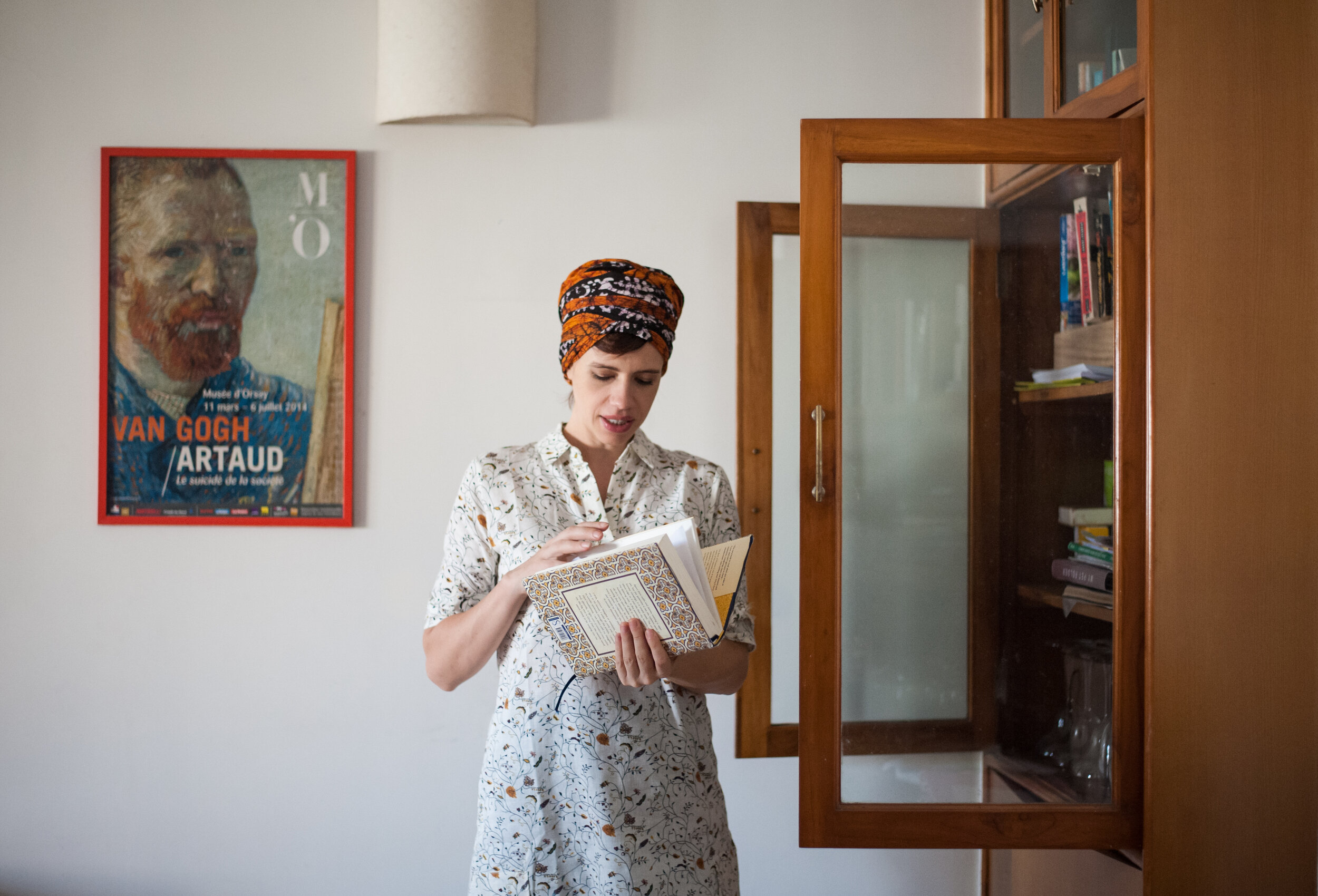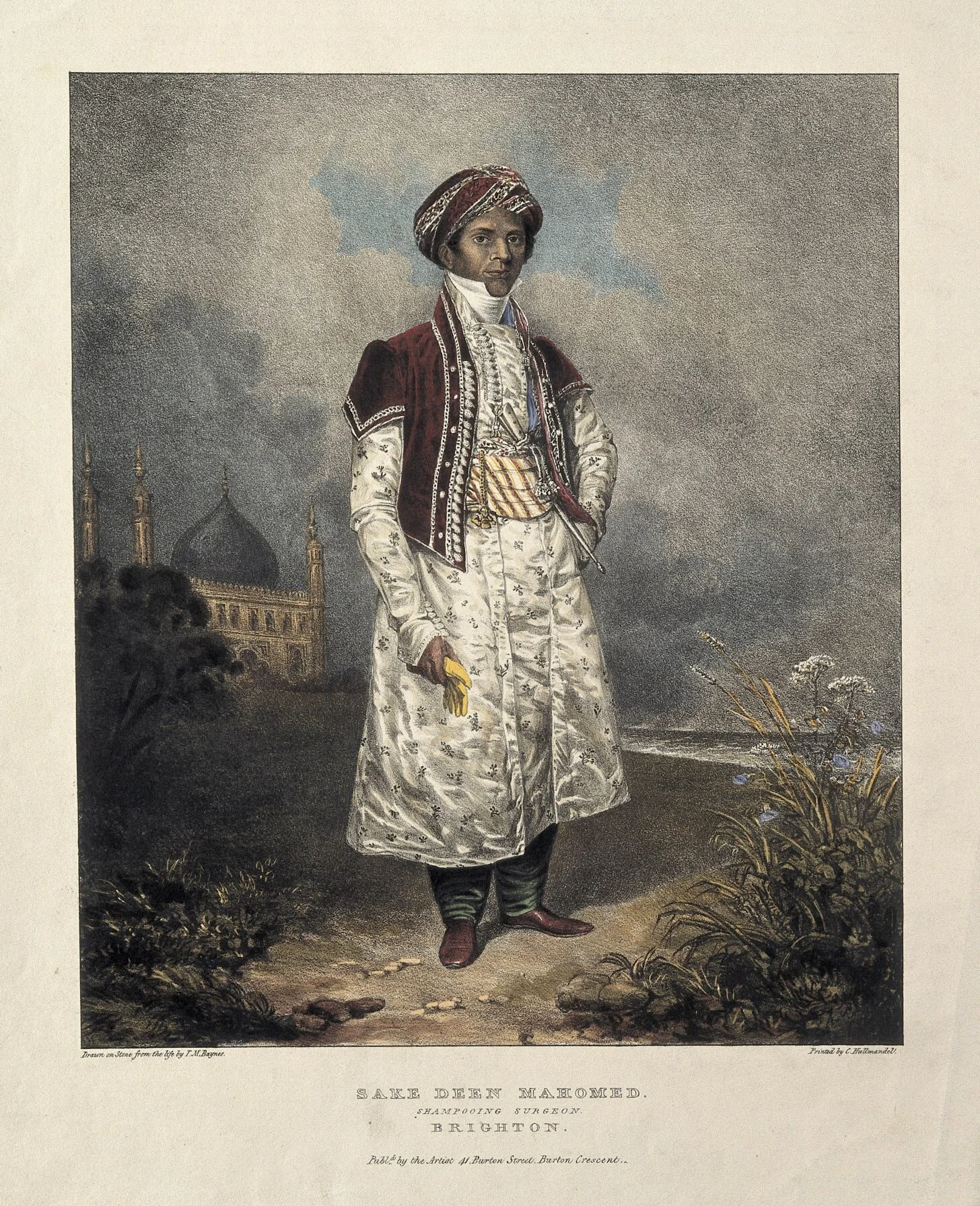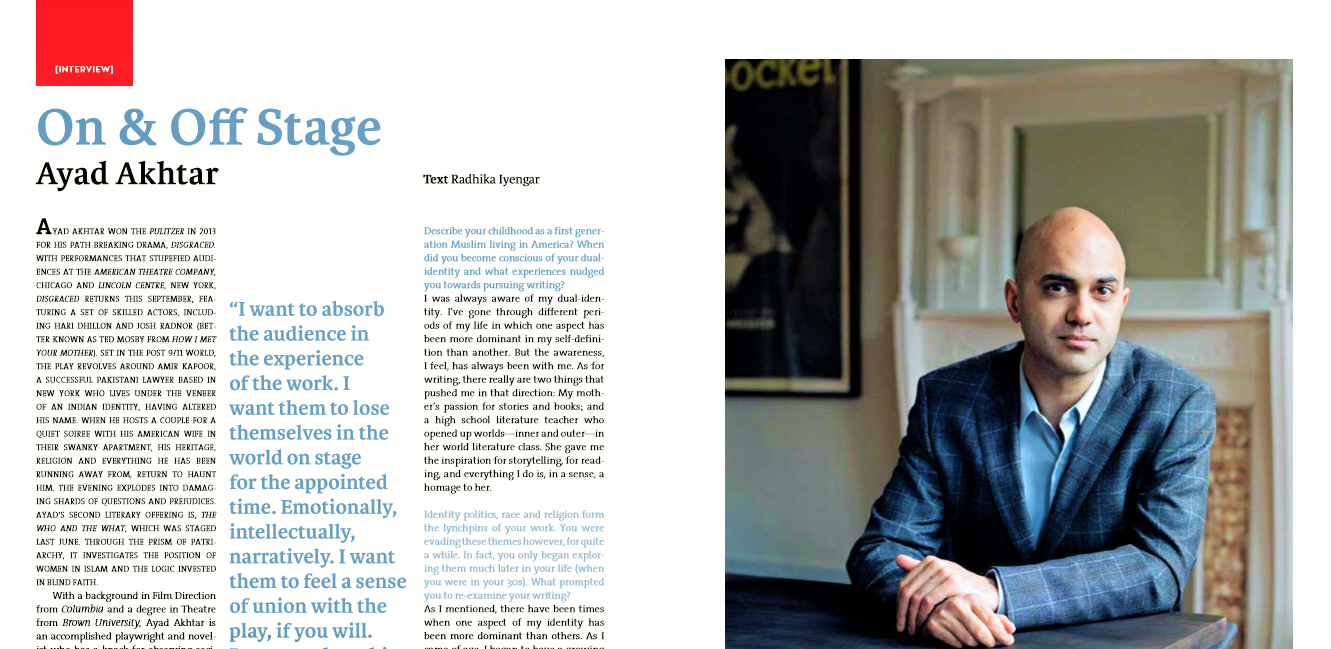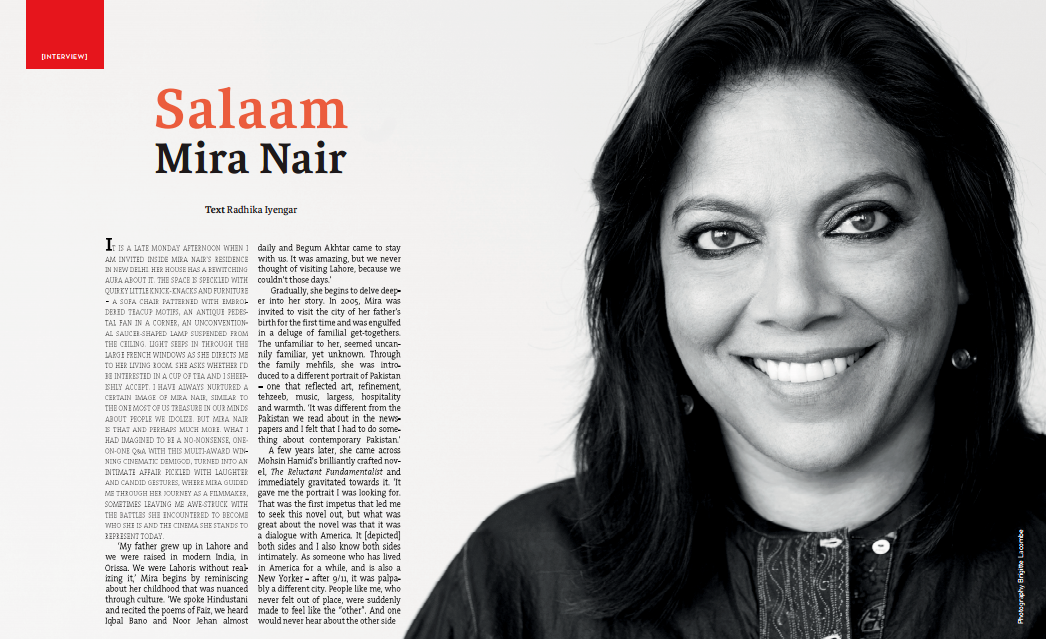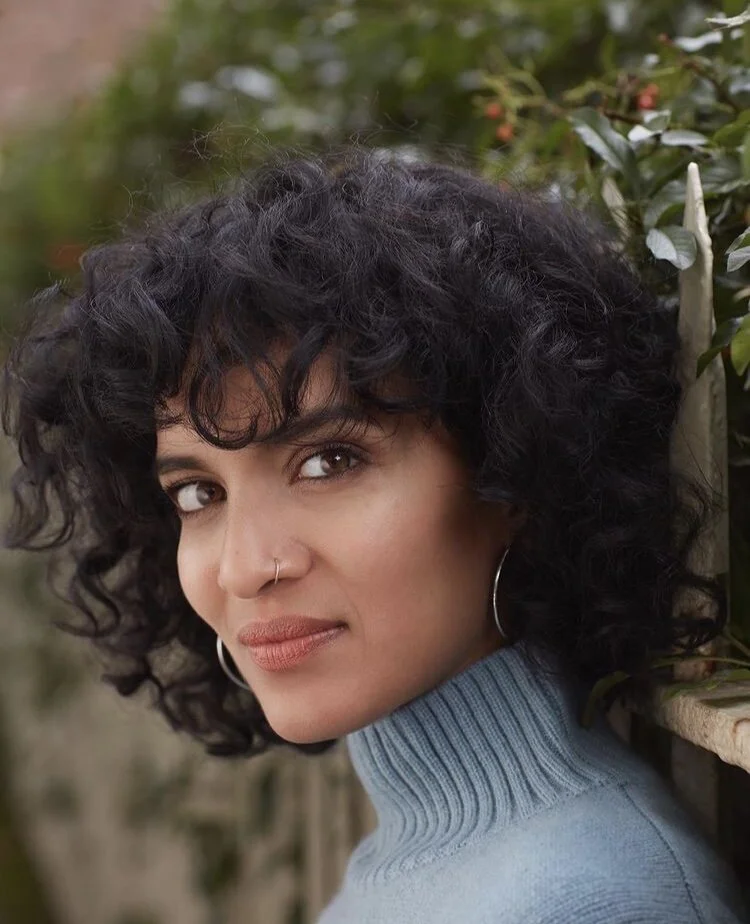At Home with Kalki Koechlin
This interview was originally published in Platform magazine. Photographs by Chandni Gajria.
I meet Kalki Koechlin in Mumbai on a bright, sunny afternoon in September. She greets me at the threshold of her Versova apartment with a perfunctory handshake and a smile. Her hair is neatly tucked in a rust-coloured bandana, which lends a certain bohemian charm.
She has just returned home from a hectic work day, but within minutes her formality falls away. It’s been a great year for Kalki: Gully Boy has recently been sent to the Oscars and series such as Made in Heaven and Sacred Games 2 have gained immense popularity.
THE LIVING ROOM
The hall of her apartment holds bright sunlight and minimal furniture. Large sliding windows frame lush green plants. A vintage chaise lounge, a settee with indigo arms and a Victorian arm chair, fill the space. Framed artworks by Chagall and Picasso, and a few others by her artistic friends adorn the walls.
The living room is where Kalki performs her quotidian rituals—it’s where she unwinds with her pianist boyfriend and Persian greyhound, practises yoga and rehearses lines for upcoming theatre performances or film projects. ‘That’s why there is not too much furniture in this room,’ she explains, gliding across the white tiled floor. ‘We empty it out when we are rehearsing for a new play.’
Kalki bought this apartment almost three years ago, after an ordeal of renting homes. ‘I moved three times before I found this place. When I was renting apartments, I shifted every six months after I left Anurag [Kashyap]. I think it didn’t help that I was a celebrity—people knew about me, they had these pre-conceived notions of me, and living as a single person was anyway difficult. ‘The day I came to see this house, there was no one except the grandmother of the family. She was teaching sitar to a few kids in the back room and the lady only spoke Tamil.’ Kalki, who was born in Pondicherry to French parents is well-versed in the South Indian language. ‘So, I spoke to her in Tamil; she was so happy that she later made me filter coffee. I think it just clicked in that moment.’
A ROOM OF ONE’S OWN
There is a room in Kalki’s home that has been dubbed as the ‘Psycho room’. It earns its name from a wall that serves as a larger-than-life canvas for the actress. It’s a patchwork of torn out magazine pages, movie posters [such as Death in the Gunj], fragments of scripts with her dialogues, letters written by old friends and cherished neighbours, self-written poems, and Rajinikanth to name a few. ‘It mostly has stuff from my life,’ she says. ‘It’s like how you keep a scrapbook...but it’s on the wall instead of a book. Just random stuff.’
Only, it isn’t random. The wall is quasi-autobiographical, layered with things that have defined her life. A scribbled sheet of paper reflects the time she was learning how to write Hebrew alphabets. ‘Then, there are all my Israeli passes, because Guy [her boyfriend] and I commute back and forth,’ she says pointing to rectangular documents tacked to the wall. ‘He lives in Jerusalem, so our whole love story has been countless trips back and forth.’
There are also quirky elements on the wall, which include an X-ray of her once-broken wrist, a 1000 rupee note [to remind her of the time of demonetisation] and a Star Wars poster. ‘As a child, I grew up on Star Wars—the original trilogy. I guess it was my substitute to religion. When I was growing up, I didn’t grow up with religion, but I did grow up with the idea of ‘the force’—good force, bad force and all.’
THE ROMANTICS
Returning to her living room, Kalki carefully pulls out a photo album from a wooden shelf. Between its translucent tissue pages are preserved black-and-white photographs of her paternal grandparents when they were young. It’s an album she treasures. Her grandparents passed away when she was 14, but she talks about how much they were in love.
‘My grandmother, who was once a model, was this very glamorous woman when she was young, and she wanted to maintain that glamour even when she was older—both financially and physically. I remember going to their house once and I saw her putting on a Gucci outfit and make-up, but we weren’t going out anywhere. She was in her 70s around that time. That’s why my granddad kept working till the very last day, because he was trying to maintain a certain kind of lifestyle. But he never left her. I think that decline never broke their love.’
Her grandparents’ story has been lingering in her head for a while, she confesses. ‘I feel something creative—either a book or something else—will definitely come out of this.’
THE BOOK OF DISQUIET
Kalki is a voracious reader. Books are everywhere—on the kitchen counter, lazing on the settee, stacked on shelves. Is there a book that holds sentimental value? There are many, she replies, before turning to her glass-fronted cabinet. Her finger is momentarily airborne, before it picks a book and traces its spine. ‘This is something that my partner gifted me when we first started seeing each other two years ago,’ she reveals while holding The Book of Disquiet by Fernando Pessoa.
Kalki goes to sit on her dining table and opens a random page. ‘Pessoa was quite an interesting person. He had multiple personality disorders and he wrote as different personas. Sometimes these personas had opposing political views that they would write with passion about.’
She talks about Pessoa with deep acuity, before pausing to recall a line from the book: ‘If there is no earth in heaven, then let’s not bother with heaven’. Such sentences stick with her, she says. Sometime in the future, she wants to hold a performance using the text.
AN ARTIST & A SONG
In the midst of our conversation, a portrait of Vincent van Gogh meets my eye: high cheekbones, copper hair brushed away from the forehead. It’s a Mus´ee d’Orsay poster, bordered by a toffee-orange frame that echoes the colour of his beard, and uncannily, of Kalki’s bandana.
‘I love him,’ she says. ‘He was one of the first artists who inspired me in school. I used to copy his style with oil paints when I was learning.’ She doesn’t paint anymore she says, but she did go through a phase when she did charcoal drawings. Some of those appeared in the movie, Shaitan, in which she acted.
Van Gogh’s personal life story means a lot to Kalki. ‘I think I am fascinated by people who exist outside of society, who obviously have deep talent, but are never quite able to, in their lifetime, get the admiration or acknowledgement they deserve.’ She picks up her ukulele from her settee. Kalki used to play the guitar, but her itinerant travels made it cumbersome to carry. ‘I can take my ukulele anywhere,’ she says. She has been practising for two months, but admits that ‘she’s still not good enough, yet’. Kalki begins to strum Build me up, Buttercup by The Foundations and the day ends for us with music.
